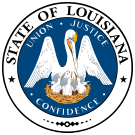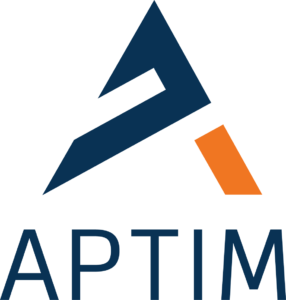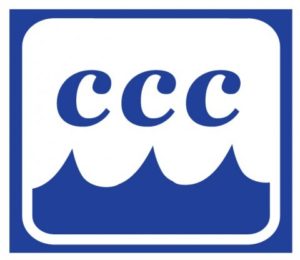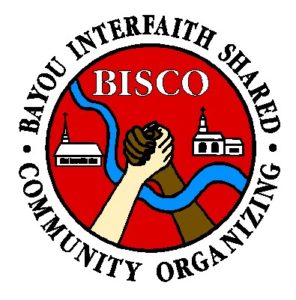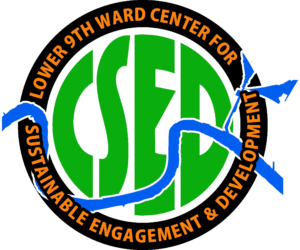Our Mission
Working together for community resilience, economic prosperity and a better quality of life for all in Louisiana.
Since Hurricane Katrina’s landfall in August 2005, each of Louisiana’s 64 parishes has been included in a federal major disaster declaration as a result of a named tropical event. Moreover, the Great Floods of 2016—two rainfall events six months apart affecting wide swaths of the state—caused severe flash and riverine floods and led to major disaster declarations in 56 parishes. These events have left an indelible mark on Louisiana’s history.
In response, LA SAFE (Louisiana's Strategic Adaptations for Future Environments) was created to provide a holistic approach to flood risk of all types — as well as the myriad of human, economic, and environmental impacts experienced following past floods and those anticipated in the future. Beginning with a partnership between the State of Louisiana and the Foundation for Louisiana (FFL), the LA SAFE process ultimately included passionate leaders, organizations, and residents who were committed to taking proactive steps toward mitigating and avoiding risk, increasing resilience, and addressing coastal challenges head on. Acknowledging that land is a shrinking commodity in Louisiana, we worked together to acknowledge that adaptation, protection, and restoration must go hand in hand. We realized that some of our most vulnerable coastal communities will need to consider relocation over the next 50 years and that migration trends are already illustrating some of the movement we expect to see in the future. As much as we are doing to restore and rebuild our coast, we will face a higher degree of flood risk and land loss over decades and generations to come.
By demonstrating the power of community-led planning informed by science and fueled by the experience and vision of residents, LA SAFE developed a set of place-specific strategies to use as we become a stronger, safer, more resilient Louisiana. Through this set of seven adaptation strategies, LA SAFE is Louisiana’s first effort in what will be a generations-long process to take what has been a historical hardship—catastrophic flood risk—and use it as a catalyst to develop a vision for a new Louisiana in which disaster risk reduction, economic growth, equity, education, and innovation are not just ideals, but hallmarks defining Louisiana’s place in the global effort to combat the consequences of climate change.
Co-Design Process Overview
To address our changing coastline and increased flood risk across our communities and economies, LA SAFE introduced an innovative approach to community adaptation. Through the State’s partnership with FFL, a first of its kind collaboration between a state government and a philanthropic organization to address climate change and adaptation, LA SAFE assembled partners from across sectors and committed to a community-driven planning process — including 71 individual public events across the six-parish region engaging nearly 3,000 individual residents.
In order to prepare for a more resilient future, LA SAFE utilized an integrated approach combining planning expertise, science, and most importantly, community members across the coast who face the challenge firsthand. The LA SAFE planning effort was iterative, continually moving between outreach and engagement, research and analysis – and the LA SAFE team met with stakeholders and community partners every step of the way. The process relied on grassroots input from start to finish and will continue to engage and encourage residents through Foundation for Louisiana’s LEAD The Coast Program far beyond the completion of LA SAFE adaptation projects.
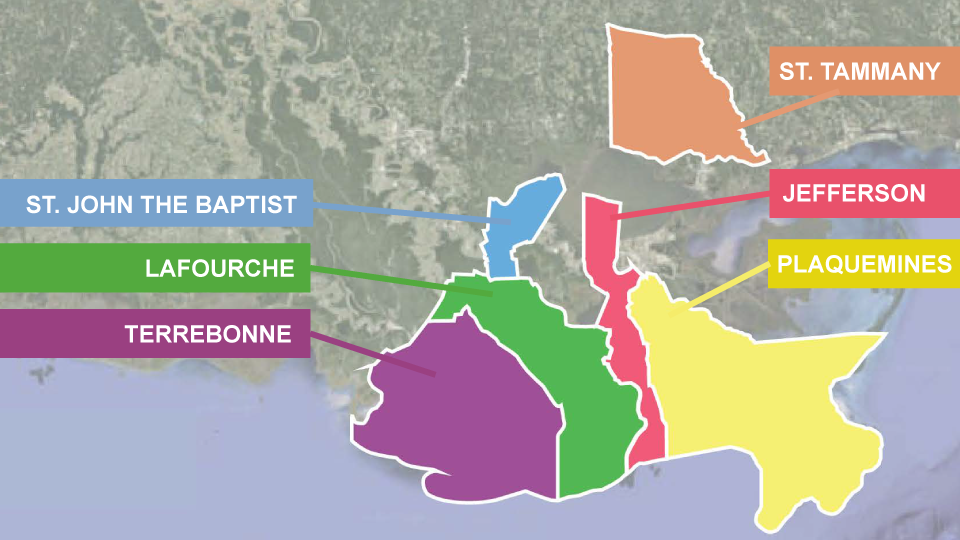
Is your parish not one of our target parishes?
In a process that shares power, community members get to shape the goals, come up with solutions, and help choose which should be implemented first. All participants get to roll up their sleeves and add ideas to the plans, as well as make decisions on what will happen.
To prioritize relationships means that we take care of one another and take time to actually get to know each other as people. It means that we do not treat people just as a source of survey data or as a means to an end. We value building relationships and trust with community members on the front lines of our coastal challenge.
This process will include all points of view, which means that we value the many kinds of diversity in our communities—and that we need everyone’s ideas to come up with the smartest solutions. To include all points of view, we have to bring all community members to the table—and we have to make sure that everyone feels respected and comfortable to share their particular point of view.
To use all kinds of knowledge means that we give equal respect to different kinds of knowledge, whether the knowledge comes from technical training or formal education, or whether it comes from life experiences, emotional responses or instinct. When we use all kinds of knowledge, we open up so many more possibilities for brilliant ideas.
We want to test solutions early & often, which means that we share and talk through ideas for solutions before we develop them in detail. We want the community to come up with ideas, choose what is most important, and help figure out how they will work. Because we are not leaping to any final solutions, we will have plenty of time to go back or change plans along the way.


Holistic Approach
As Louisiana invests to restore our coast, we must consider how to best adapt to new challenges and opportunities. Considering demographic, social, economic and environmental shifts helps us to plan in our communities, across our parishes and within the broader region toward a stronger and safer Louisiana.
We often think of land loss and coastal change as environmental challenges, but we increasingly experience the effects of those environmental issues inside our communities and across our economies. Our wetland landscapes provide a natural buffer against flooding and extreme storm events. As those swamps and marshes subside and diminish, our communities and economic drivers embedded within them are more vulnerable to storms. Flood events damage businesses, destroy homes and communities while disrupting daily life. We must consider flood risk as we invest to maintain our everyday services, our schools, our hospitals and our infrastructure. We must better understand when, where, why and how residents are already moving from one community to another. We must consider future flood risk from continued land loss as our communities grow and we plan new development, even with the tremendous investments to restore our protective wetland buffer.
These challenges are not purely environmental ones; they impact our communities in a collection of ways. We must plan for our communities and culture as well as our economy and jobs as we consider our environment and sustainability.
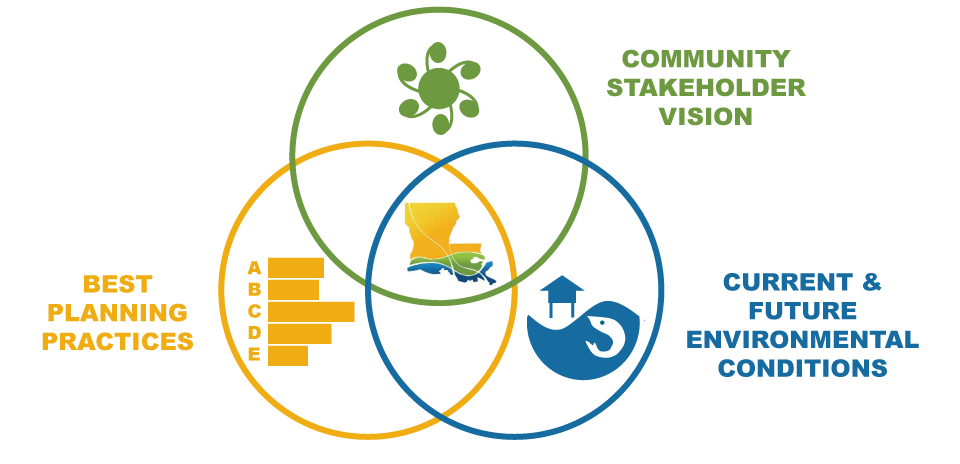
Diverse Expertise
Our team includes planners, designers, community leaders, risk modelers, scientists, sociologists, architects, demographers, and most importantly, community members from across Louisiana’s coast. This diversity of expertise led LA SAFE to create a truly shared community vision, incorporating our best understanding of current and future environmental conditions, and learn best planning practices.
Together, LA SAFE developed adaptation strategies that will support our communities and economies while addressing environmental risk today and well into the future.
Connecting Local to Regional
Through the LA SAFE process, each parish now has a strategy that includes programs, policies and projects to support southeast Louisiana communities over the next 50 years, as land loss and flood risk continue to increase. These challenges are ones we expect to face over decades and generations.
Through September 2017, we had engaged almost 1,500 residents. One thing that we heard from them is that issues related to stormwater, transportation and development policy cross parish boundaries. At the same time, within our parishes, individual communities experience very different effects of land loss and increased flood risk. With this feedback, we’ve been able to identify local, regional, and state policy solutions, as well as ways for governments to coordinate more effectively across political boundaries.
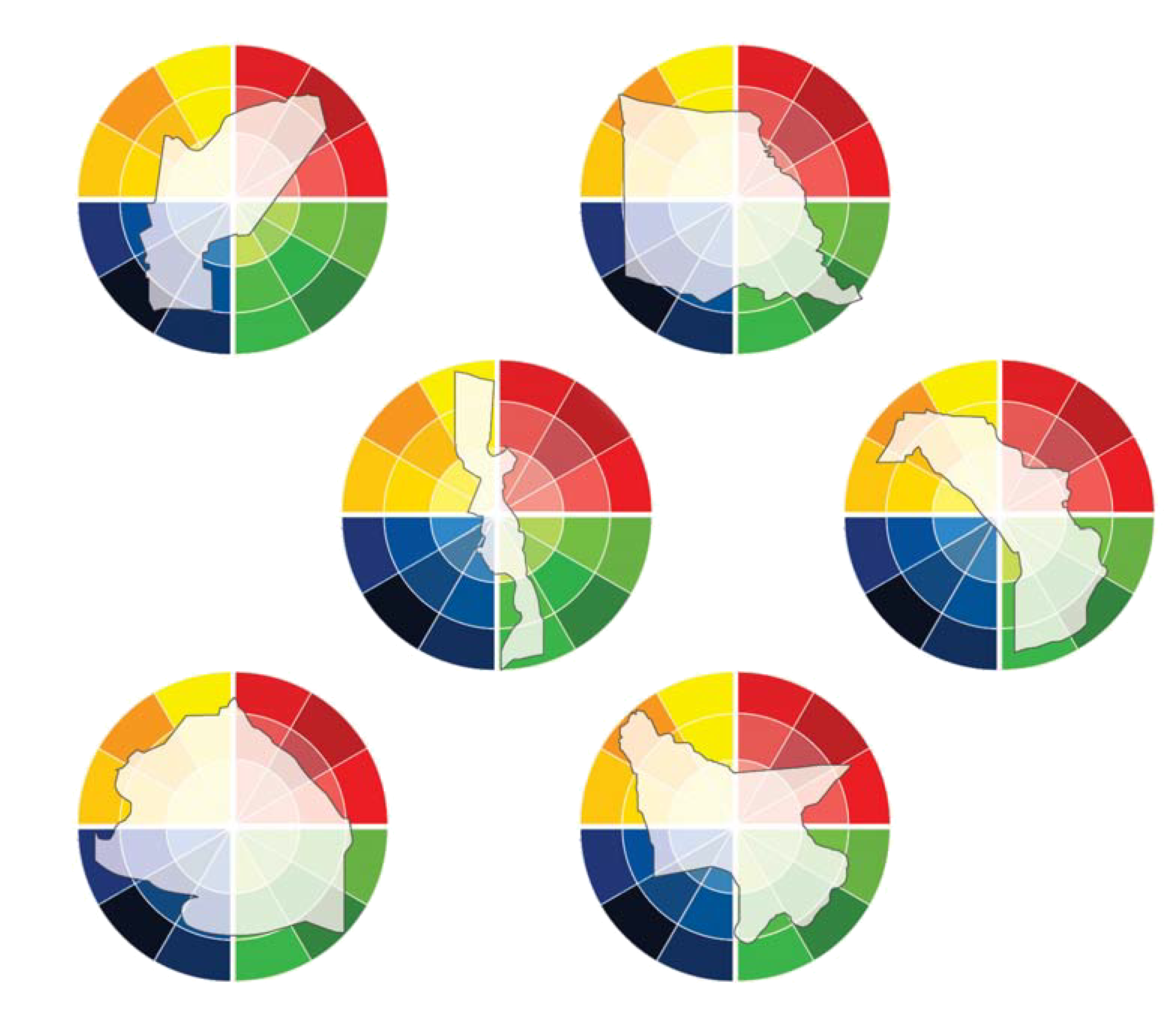
Mission Partners
With the help of our partnerships, we are growing community networks and knowledge to help address challenges and develop solutions needed to respond to coastal changes and adapt across social, cultural, economic and environmental landscapes.
LA SAFE Table Hosts
A hallmark of the LA SAFE planning process is empowering resident leaders. After presentations were made to everyone assembled, smaller group discussions were led by table hosts—residents who helped to guide conversations and capture the feedback of meeting participants. These residents are from within the six LA SAFE launch parishes or adjacent parishes and had contributed their time to learning the materials and activities so that they could answer questions and facilitate discussion. Here is a list of table hosts who helped guide the review of materials, exercises, discussions, strategy development and planning at the resident level at our LA SAFE public meetings, both at the community and parish-wide levels. Some include the organizations they represent.
Angela Chalk
Joan Garner
Brittany Kime
Katherine Prevost
Katrina Williams – Coastal Communities Consulting (also Plaquemines Parish)
Bette Billiot — United Houma Nation
Donald Bogen – BISCO (Bayou Interfaith Shared Community Organizing)
Sharon Foret — BISCO (Bayou Interfaith Shared Community Organizing)
Virgie Foret
Wayne Simoneaux
Regina Verdin
Anitra Woods
Richie Blink — National Wildlife Federation
Ly Chan (Cambodian community)
Sandy Nguyen — Coastal Communities Consulting (Vietnamese, Cambodian, Spanish and English-speaking fishing communities)
Lynda Om (Cambodian community)
Sandy Prom (Cambodian community)
Darilyn Turner — Zion Travelers Cooperative Center (East Bank)
Pat Vong (Cambodian community)
Patricia Davis — Plaquemines Community Care Centers Foundation (also for Plaquemines Parish)
Monica Hernandez
Partner Organizations
BISCO
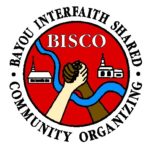 BISCO’s mission is to bring together local residents through faith institutions of multiple denominations in order to develop a network of relationships, capacity-building programs and trainings focused on addressing issues of communities from a grassroots level.
BISCO’s mission is to bring together local residents through faith institutions of multiple denominations in order to develop a network of relationships, capacity-building programs and trainings focused on addressing issues of communities from a grassroots level.
Blue Moon Fund
Blue Moon Fund works to build human and natural resilience to a changing and warming world. They use natural, social, and financial capital to implement new models in high-biodiversity regions around the world.
Center for Planning Excellence
 Center for Planning Excellence is a non-profit planning organization that champions the power of good planning to build livable, resilient communities throughout Louisiana through their work as policy advocates, educators and planning experts. They provide best-practice planning models, innovative policy and project ideas, and planning and implementation assistance to individual communities that wish to create and enact plans at all scales that provide sustainable approaches to transportation and infrastructure needs, environmental issues, and quality design for the built environment.
Center for Planning Excellence is a non-profit planning organization that champions the power of good planning to build livable, resilient communities throughout Louisiana through their work as policy advocates, educators and planning experts. They provide best-practice planning models, innovative policy and project ideas, and planning and implementation assistance to individual communities that wish to create and enact plans at all scales that provide sustainable approaches to transportation and infrastructure needs, environmental issues, and quality design for the built environment.
Coalition to Restore Coastal Louisiana
 Coalition to Restore Coastal Louisiana’s mission is to drive bold, science-based action to rebuild coastal Louisiana through outreach, restoration, and advocacy. CRCL has a history of guiding policy, watch-dogging funding, and advocating equitable, sustainable restoration for coastal Louisiana and its communities.
Coalition to Restore Coastal Louisiana’s mission is to drive bold, science-based action to rebuild coastal Louisiana through outreach, restoration, and advocacy. CRCL has a history of guiding policy, watch-dogging funding, and advocating equitable, sustainable restoration for coastal Louisiana and its communities.
Coastal Communities Consulting, Inc.
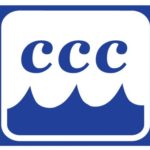 Coastal Communities Consulting, Inc. is a nonprofit organization in Southeast Louisiana to explicitly address the needs of the region’s coastal entrepreneurs and their families, providing business technical assistance, social support services, economic development, continued disaster assistance, and coastal issues awareness and education. With strong emphasis on equity and economic stability, CCC’s mission is to secure coastal communities’ resilience by developing transitional mechanisms to support businesses and families on the front lines of ecological, climate, and policy change. For the past 10 years, CCC has provided multilingual programs and services to over 1600 clients and businesses across 7 coastal parishes.
Coastal Communities Consulting, Inc. is a nonprofit organization in Southeast Louisiana to explicitly address the needs of the region’s coastal entrepreneurs and their families, providing business technical assistance, social support services, economic development, continued disaster assistance, and coastal issues awareness and education. With strong emphasis on equity and economic stability, CCC’s mission is to secure coastal communities’ resilience by developing transitional mechanisms to support businesses and families on the front lines of ecological, climate, and policy change. For the past 10 years, CCC has provided multilingual programs and services to over 1600 clients and businesses across 7 coastal parishes.
Coastal Protection and Restoration Authority
 The Coastal Protection and Restoration Authority is Louisiana’s central authority that is responsible and accountable for oversight of all coastal protection and restoration activities and funds, and it wanted a coordinated plan of action with clear goals and achievable objectives. CPRA is responsible for the implementation and enforcement of the state’s Coastal Master Plan, Louisiana’s Comprehensive Master Plan for a Sustainable Coast.
The Coastal Protection and Restoration Authority is Louisiana’s central authority that is responsible and accountable for oversight of all coastal protection and restoration activities and funds, and it wanted a coordinated plan of action with clear goals and achievable objectives. CPRA is responsible for the implementation and enforcement of the state’s Coastal Master Plan, Louisiana’s Comprehensive Master Plan for a Sustainable Coast.
Greater New Orleans, Inc.
Greater New Orleans, Inc. is a regional economic development alliance serving the 10-parish region of Southeast Louisiana that includes Jefferson, Orleans, Plaquemines, St. Bernard, St. Charles, St. James, St. John, St. Tammany, Tangipahoa, and Washington parishes. Their mission is to create a region where our families can live and prosper, a region with abundant job opportunities and excellent quality of life, indicated by the presence of a robust, accessible, and growing middle class in Southeastern Louisiana.
Greater New Orleans Foundation
 Greater New Orleans Foundation is a philanthropic institution dedicated to driving positive impact through philanthropy, leadership, and action in the Greater New Orleans Region. They also provide civic leadership within the Greater New Orleans region to help address the city’s biggest challenges, in order to improve the everyday lives of the people that live here for generations to come.
Greater New Orleans Foundation is a philanthropic institution dedicated to driving positive impact through philanthropy, leadership, and action in the Greater New Orleans Region. They also provide civic leadership within the Greater New Orleans region to help address the city’s biggest challenges, in order to improve the everyday lives of the people that live here for generations to come.
Healthy Community Services
Healthy Community Services’ work focuses on ensuring the connectivity of neighbors to each other, in order to foster a sense of community. This is achieved through a myriad of engagement activities around health, food, green infrastructure, and urban stormwater management.
Lake Pontchartrain Basin Foundation
 Lake Pontchartrain Basin Foundation’s mission and values are focused on the 16 parishes within the Lake Pontchartrain Basin. Their work drives environmental sustainability and stewardship through scientific research, education and advocacy. LPBF developed and advocates the Multiple Lines of Defense as an integrated and necessary approach to build resilient coastal communities.
Lake Pontchartrain Basin Foundation’s mission and values are focused on the 16 parishes within the Lake Pontchartrain Basin. Their work drives environmental sustainability and stewardship through scientific research, education and advocacy. LPBF developed and advocates the Multiple Lines of Defense as an integrated and necessary approach to build resilient coastal communities.
NOVAC
NOVAC’s mission is the cultivation of independent voices and visions. For over four decades, NOVAC has provided education, training, resources, and opportunities to Louisiana’s storytellers. Our daily work connects locals in New Orleans and Baton Rouge to creative and economic opportunities, while supporting innovative and community-based storytelling projects and programs.
Restore or Retreat
![]() Restore or Retreat is a non-profit coastal advocacy group created by coastal Louisiana residents and stakeholders who recognize that the Barataria and Terrebonne basins are the two most rapidly eroding estuaries on earth, and that this erosion represents an economic and ecological crisis. With a growing membership of over 250 businesses and individuals, they seek to identify, expedite and aggressively engage solutions to urgently achieve comprehensive coastal restoration.
Restore or Retreat is a non-profit coastal advocacy group created by coastal Louisiana residents and stakeholders who recognize that the Barataria and Terrebonne basins are the two most rapidly eroding estuaries on earth, and that this erosion represents an economic and ecological crisis. With a growing membership of over 250 businesses and individuals, they seek to identify, expedite and aggressively engage solutions to urgently achieve comprehensive coastal restoration.
Restore the Mississippi Delta
 Restore the Mississippi Delta is a coalition of Environmental Defense Fund, National Audubon Society, the National Wildlife Federation, Coalition to Restore Coastal Louisiana, and Lake Pontchartrain Basin Foundation. They are working to rebuild coastal Louisiana’s nationally-significant landscape to protect people, wildlife and jobs.
Restore the Mississippi Delta is a coalition of Environmental Defense Fund, National Audubon Society, the National Wildlife Federation, Coalition to Restore Coastal Louisiana, and Lake Pontchartrain Basin Foundation. They are working to rebuild coastal Louisiana’s nationally-significant landscape to protect people, wildlife and jobs.
Rockefeller Foundation
Rockefeller Foundation’s mission is to promote the well-being of humanity throughout the world. Today the Foundation advances new frontiers of science, data, policy, and innovation to solve global challenges related to health, food, power, and economic mobility. As a science-driven philanthropy focused on building collaborative relationships with partners and grantees, The Rockefeller Foundation seeks to inspire and foster large-scale human impact that promotes the well-being of humanity by identifying and accelerating breakthrough solutions, ideas and conversations.
The Data Center
 The Data Center is an independent research organization whose aim is to share data analysis with the public and inform key regional decisions in southeast Louisiana. Founded in 1998 as a product of Nonprofit Knowledge Works, The Data Center has a strong track record bringing reliable and actionable data to decision makers in southeast Louisiana.
The Data Center is an independent research organization whose aim is to share data analysis with the public and inform key regional decisions in southeast Louisiana. Founded in 1998 as a product of Nonprofit Knowledge Works, The Data Center has a strong track record bringing reliable and actionable data to decision makers in southeast Louisiana.
University of New Orleans-Center for Hazards Assessment, Response and Technology
 University of New Orleans-Center for Hazards Assessment, Response and Technology (UNO-CHART) is an applied social science hazards research center that partners with and supports Louisiana communities and national activities in efforts to achieve disaster resilience through risk reduction and mitigation. Their vision is to support applied research focusing on sustainability and resilience strategies that acknowledge natural, technological, and environmental risks in the region, and to collaborate with similar programs across the country.
University of New Orleans-Center for Hazards Assessment, Response and Technology (UNO-CHART) is an applied social science hazards research center that partners with and supports Louisiana communities and national activities in efforts to achieve disaster resilience through risk reduction and mitigation. Their vision is to support applied research focusing on sustainability and resilience strategies that acknowledge natural, technological, and environmental risks in the region, and to collaborate with similar programs across the country.
Zion Travelers Cooperative Center
 Zion Travelers Cooperative Center is a faith-based nonprofit that supports the voices of African-Americans on the southeast east bank of Plaquemines Parish, Louisiana. Their organizational objectives are around coastal protection, disaster preparedness, political representation, rebuilding, new program development, organizing, networking, and leadership development.
Zion Travelers Cooperative Center is a faith-based nonprofit that supports the voices of African-Americans on the southeast east bank of Plaquemines Parish, Louisiana. Their organizational objectives are around coastal protection, disaster preparedness, political representation, rebuilding, new program development, organizing, networking, and leadership development.

